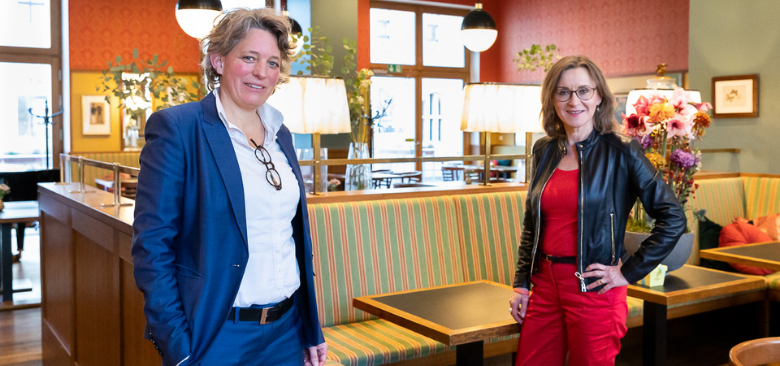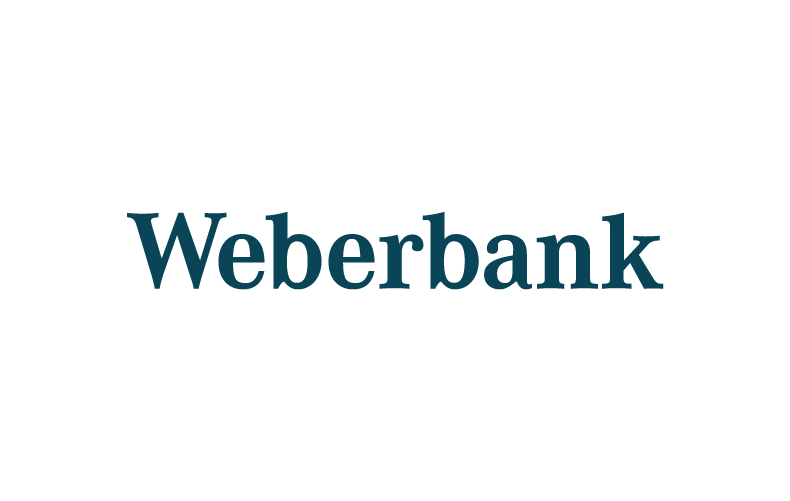# Women in management positions
Your content goes here. Edit or remove this text inline or in the module Content settings. You can also style every aspect of this content in the module Design settings and even apply custom CSS to this text in the module Advanced settings.
events
Membership
WOMEN IN MANAGEMENT POSITIONS
Will we succeed in the energy transition?
Q&A with Iris Stempfle, Head of Iberola Renovables Germany

WOMEN IN MANAGEMENT POSITIONS
Anatomy of power
On power phenomena, rules of the game and possibilities
The Women in Business Committee kicked off the new series of events on the topic of women and power in a historic Berlin lecture hall at the TU Berlin.
Power has many forms
There are major differences in the exercise of power in the fields of science, politics and business. This is not limited to the management level. It is also the secretary who has sole access to the best conference rooms. No booking without her approval. At the cabinet table, on the other hand, people simply take their time to approve legislation and thus demonstrate their power.
WOMEN IN MANAGEMENT POSITIONS
Woman. Power. Economy.
Successful women ask - successful women answer

For the VBKI-Spiegel series, Monika Maria Lehmann, Managing Director of Fellaws Consult GmbH, met with Prof. Dr. Sabina Jeschke, Board Member for Digitalization and Technology at Deutsche Bahn AG. A conversation about the potential of artificial intelligence - and why it's time to cut out a few old habits in German companies.
LEHMANN: Corona has had us firmly in its grip for months: when you look back on 2020, what new insights can you identify in your professional environment?
JESCHKE: I really like the fact that we are finally questioning the culture of presence. For a long time, it was assumed in business that if you are not present, you cannot act. Now, in a kind of "gigantic social experiment", we are suddenly seeing that you don't have to be in the office from morning to night for five days. That productivity even increases in many cases if you don't. This move away from strict presence is opening up completely new models of living and working; the compulsion to urbanize is also being broken up.
I see another positive change in digitalization. Deutsche Bahn decided to move to the cloud in 2016. At the time, it was viewed with skepticism. Today we know: Without the cloud, smooth processes would not have been possible during the lockdown. If, as a result of the pandemic, more digital innovations are ventured in the future, I think that would be great.
Are you experiencing greater dynamism or rather paralysis in the economy since coronavirus?
What paralyzes us are the endless discussions about who blocks what for how long. What helps us move forward is the new speed. We should definitely maintain this speed that we have all been forced to display. And we should take the opportunity to finally cut off a few old habits. One of our biggest problems in Germany is the shortage of workers: coronavirus will pass, but demographic change is here to stay. Before coronavirus, there was virtually full employment and the labor market was empty. If you think about working from home, you suddenly realize: it doesn't matter where my employees work. Theoretically, a company can hire half the world. So why not attract young, qualified workers from Greece, Italy, Spain or other countries with high youth unemployment? Of course, this will only work if we finally speak more English in companies.
You are an expert in the field of artificial intelligence (AI). What should every manager know about AI today?
On the one hand, company management should understand the potential of such processes. How can AI help me to gain new insights and radically improve performance in my area? A simple example from Deutsche Bahn: maintenance needs to become more efficient. Recently, we have had trains automatically inspected by cameras; neural networks detect damage to the outer skin of the train. When you find pragmatic applications like this, the use of AI immediately makes sense.
Secondly, managers need an idea of how AI is developing. Today, we are mainly dealing with algorithmic issues. As soon as the 5G mobile network is further expanded, new aspects will be added, in particular the real-time capability for transferring large amounts of data. Management and supervisory boards should also be informed about this.
You have also conducted research into artificial consciousness. What is science doing that the economy is still unaware of?
We often believe that consciousness is a property of humans. This is wrong - we can also demonstrate consciousness in animals. And comparisons with the animal world show that the more intelligent an animal is, the stronger its consciousness becomes. Consciousness is therefore a by-product of of intelligent biological systems. What does this mean for artificial intelligence? Does the increase in intelligence also go hand in hand with the development of consciousness? One thing is certain: when we interact with artificially intelligent systems - with an autonomous vehicle, a robot - the more the intelligence of the machine and that of the human being are structurally similar, the easier it is to communicate.
Can AI also support change processes in companies?
Until now, the evaluation of change programs has been very subjective; AI could enable greater objectivity. Do employees really communicate better? And which results are driven through the organization with which communication medium and at what speed? This can be made visible with AI. But this is only one possible area of application. It is also conceivable to build simulation environments in the future, as is already being done today for virtual vehicle tests. So far, we have only seen these "digital twins" for physical objects. Perhaps in the future it will also be possible to model social behavior in virtual environments. I could then create a kind of artificial population or artificial workforce on which I could test various change scenarios. But that doesn't exist yet.
Berlin is often referred to as Germany's AI stronghold. And rightly so?
Yes, because the capital has a very good science scene, also thanks to the Excellence Initiative. And Berlin is a city of start-ups. AI plays a role in many young digital companies. Nevertheless, other regions should not be underestimated: In addition to Munich, these are primarily Stuttgart, Karlsruhe, Aachen and Cologne. Berlin is well positioned, but its lead is smaller than some people think.
What else would Berlin need to extend its wafer-thin lead?
It would be important for there to be some kind of pipeline in Berlin. Yesterday's students are today's start-up founders - but where will they go tomorrow if they want to join a DAX company? In this respect, I am very excited that Siemens is building a campus in Berlin and that the automotive industry is now setting up incubators. These are the first harbingers. But it remains an important political task to bring more big names here - not just the Tesla plant, which, by the way, is showing us once again what speed other nations - should I say "other mindsets" - are capable of.
Your fellow board member Sigrid Nikutta and other influential women recently called once again for a quota for board members. What is your position on the issue?
Until recently, I was of the opinion that we had to increase the proportion of women in other ways. Now I see that this has not really been successful. In this respect, we probably do need a quota system for the time being. However, we should pay attention to consensus, balance and rationality. Furthermore, we should not focus solely on the issue of women and men. I am firmly convinced that diverse teams work better. Gender, age and cultural background all play a role, as does the scientific culture you come from. In this respect, we absolutely need greater diversity on management boards and supervisory boards.
Finally, a look into the future: what will be your main focus in 2021?
The topic of AI will remain important in the coming year. I'm thinking about improving our processes, better understanding our customers, tailor-made offers, higher quality, punctuality of trains, etc. I will also be focusing on the performance gains in artificially intelligent systems: the triad of algorithms, 5G networks and quantum computing, i.e. the analysis of huge amounts of data. I definitely want to develop AI in this direction, both as part of my research and as part of my work on the Executive Board.
Thank you very much!
WOMEN IN MANAGEMENT POSITIONS
WOMEN IN MANAGEMENT POSITIONS
"Mobility is participation"
Q&A lunch with VDA President Hildegard Müller
She was Federal Chairwoman of the Junge Union, Minister of State in the Chancellery for many years and held leading positions in the energy industry - since the beginning of 2020, Hildegard Müller, CDU, has been the second woman to head the Association of German Automotive Companies at the VBKI's networking format for female managers - the Q&A lunch - where the top manager answered questions from the 26 participants. The event was moderated by VBKI Vice President Dr. Sigrid Nikutta.
Photo: VBKI
Hildegard Müller first introduced herself to those present and gave an insight into her career. The discussion then turned to the current situation and prospects of the German automotive industry. Germany's prosperity is largely based on automobile production, with 70 percent of jobs in the industry being export-dependent and 70 percent also dependent on the combustion engine. In view of the current challenges - keyword climate protection, keyword energy prices - it is important to set the course with a sense of proportion and, above all, to evaluate it from an overall perspective: "If we think climate protection, we must also think growth and prosperity," said Hildegard Müller.
According to the top manager, the German automotive industry continues to lead the field in terms of technology and innovation, but competition has become much tougher, partly because numerous new players are vying for market share. Hildegard Müller views the exploding energy costs with great concern: "If we carry on as before, we have no chance of maintaining our competitive position." She called for a raw materials strategy, an electrical strategy and independence from natural gas as an energy source.
In order to achieve the existing climate targets as planned, she said, every second car today would have to be electrically powered. It is important to understand that mobility means participation: "We have to ask people what they need and want - if we don't take them with us and motivate them, global climate protection efforts will fail."
News & Press
Our premium partners




